When a chess grandmaster sees a chess position, the first thing that comes to his mind is to assess the position and understand the situation on board.
He goes ahead to form a plan, but he does not move a single piece until he has done proper calculations and has decided that it will favor him in the end.
Calculation is an invaluable skill in chess that tests the strength of a chess player’s mind and, by extension, his chess ability.
You have to judge positions, come up with candidate moves, and narrow it down to one or two lines that gives you best play.
But if you ever had to play a game of chess against a stronger player, you’ll understand that calculating can be quite difficult.
So, how do you improve this skill? What tips or guidelines do you have to follow?
There are 9 steps we recommend going through to improve your chess calculation skills.
They include:
- Always Analyze Forced Moves First
- Solve Chess Studies
- Solve Puzzles Over-The-Board (OTB)
- Practice Visualization Techniques
- Get a Playing Partner to Work on Your Game
- Play Games with Shorter Time Controls/Formats
- Get Good Chess Books
- Play Blindfold Chess
- Follow Grandmaster Games
Let’s study these steps in detail:
Always Analyze Forced Moves First
Forced moves are those moves that require urgent attention and must be attended to immediately. In other words, these kinds of move gives your opponent no choice but to attend to it.
A check on a king is an excellent example of a forced move because your opponent is forced to abandon his plans and attend to yours temporarily.
Let’s look at an example:
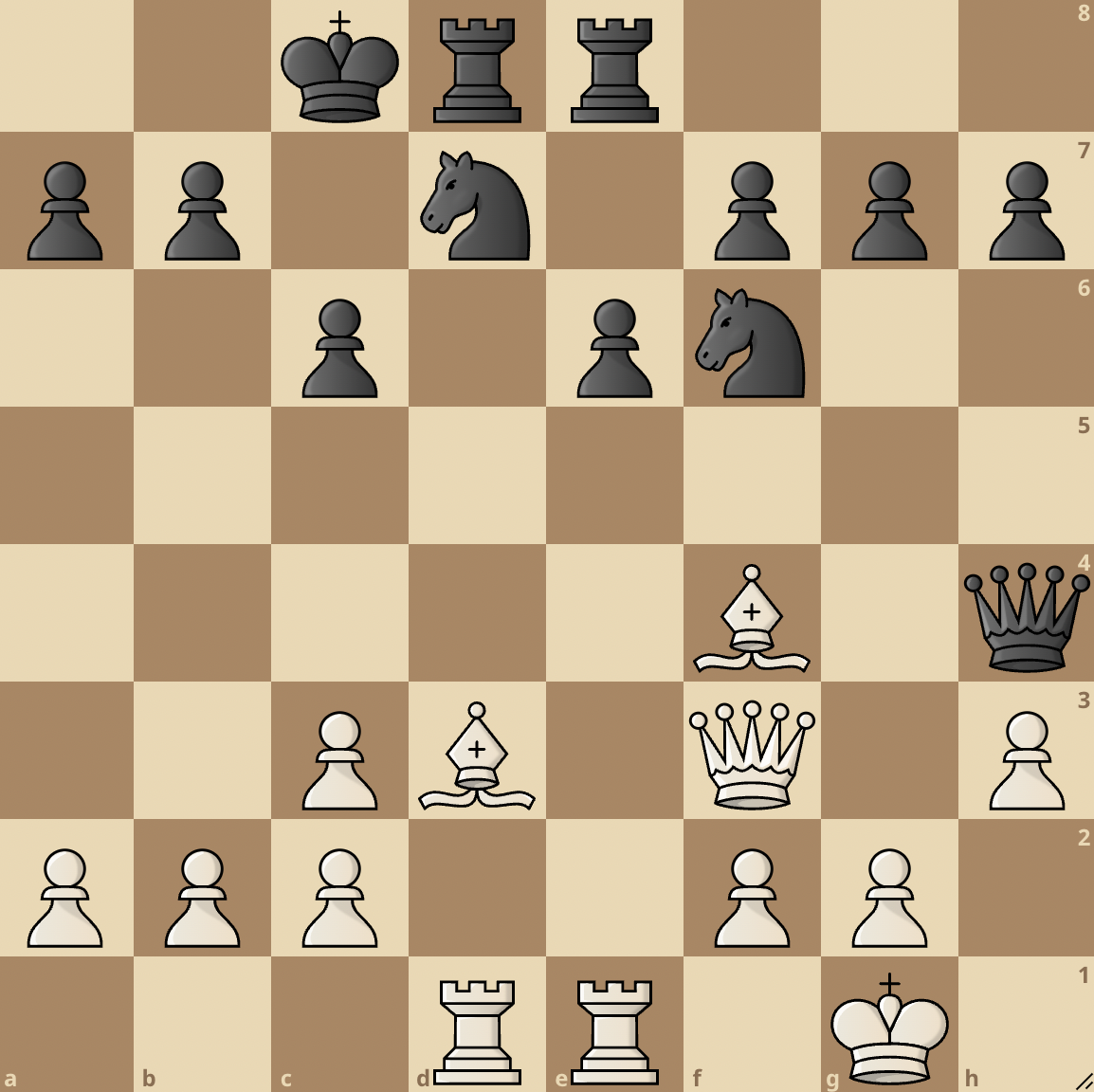
The position above looks like the kind of position that frequently happens in games. However, this is different as will be shown.
Let’s assume that White is a 1800 player who has the next move. He could think:
” My pieces are well developed, I have the two bishops against Black’s two knight and my rooks are well placed in the centre.
But before I make any moves, I need to check if there are any forcing moves.
I have pawn to g3 attacking the Black queen but the queen can capture my hanging pawn on h3. And if I play Bf1, the queen can play Qh5 offering a trade because it’s supported by the knight on f6. That can’t work.
Uhmmm…what about Bg3? That also threatens the Black queen but she can simply go Qg5. Not good enough.
Is there any more forcing move? Oh, I see Qxc6+ but surely, I’m not exchanging my precious queen for a single pawn.
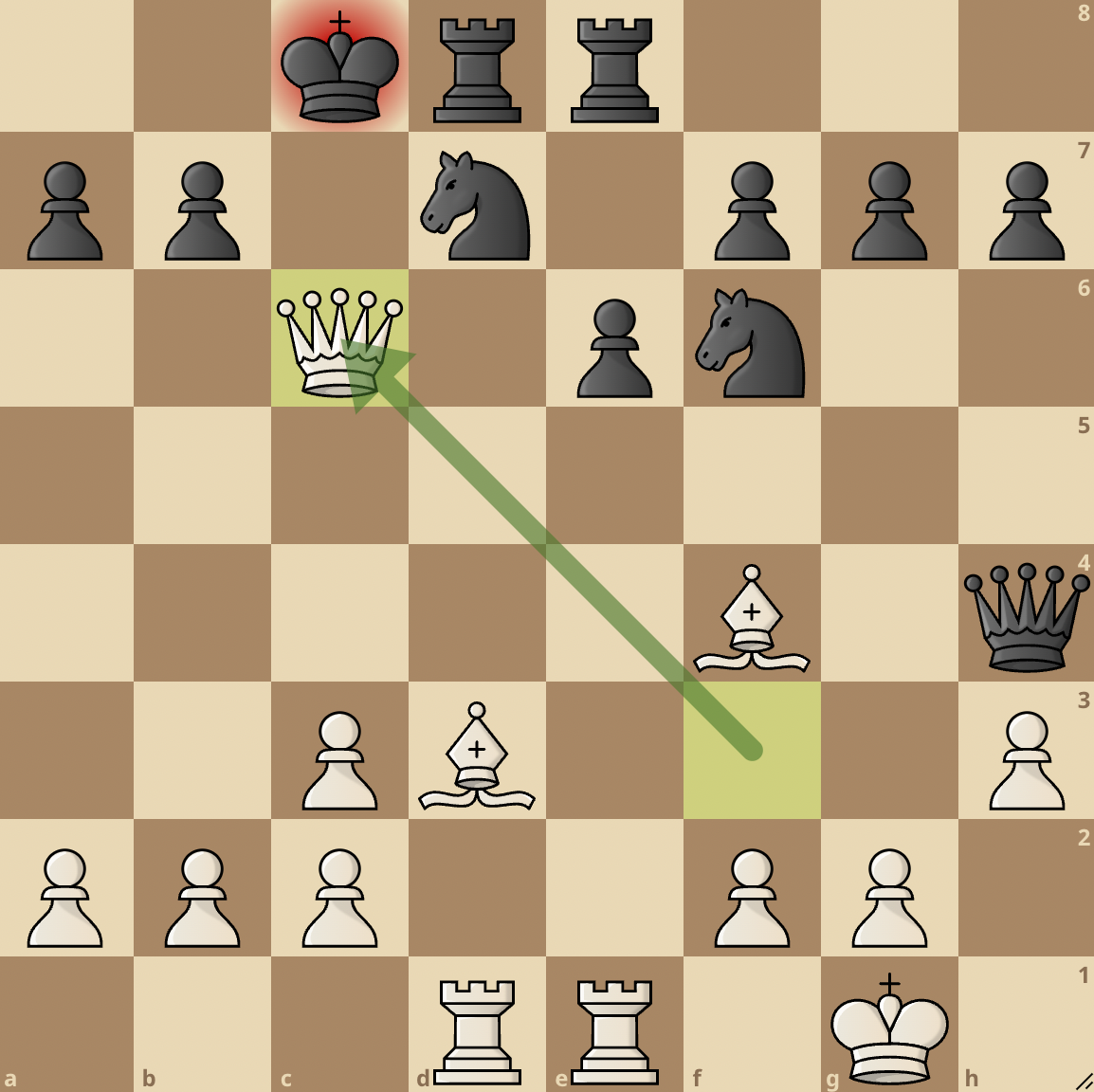
But what if Black takes, after all he has to because the f4-b8 diagonal is controlled by my dark-squared bishop. Do I have a follow up move? Oh, yes I do. Bishop to a6 is check, no……it’s CHECKMATE! I found the killer move!”
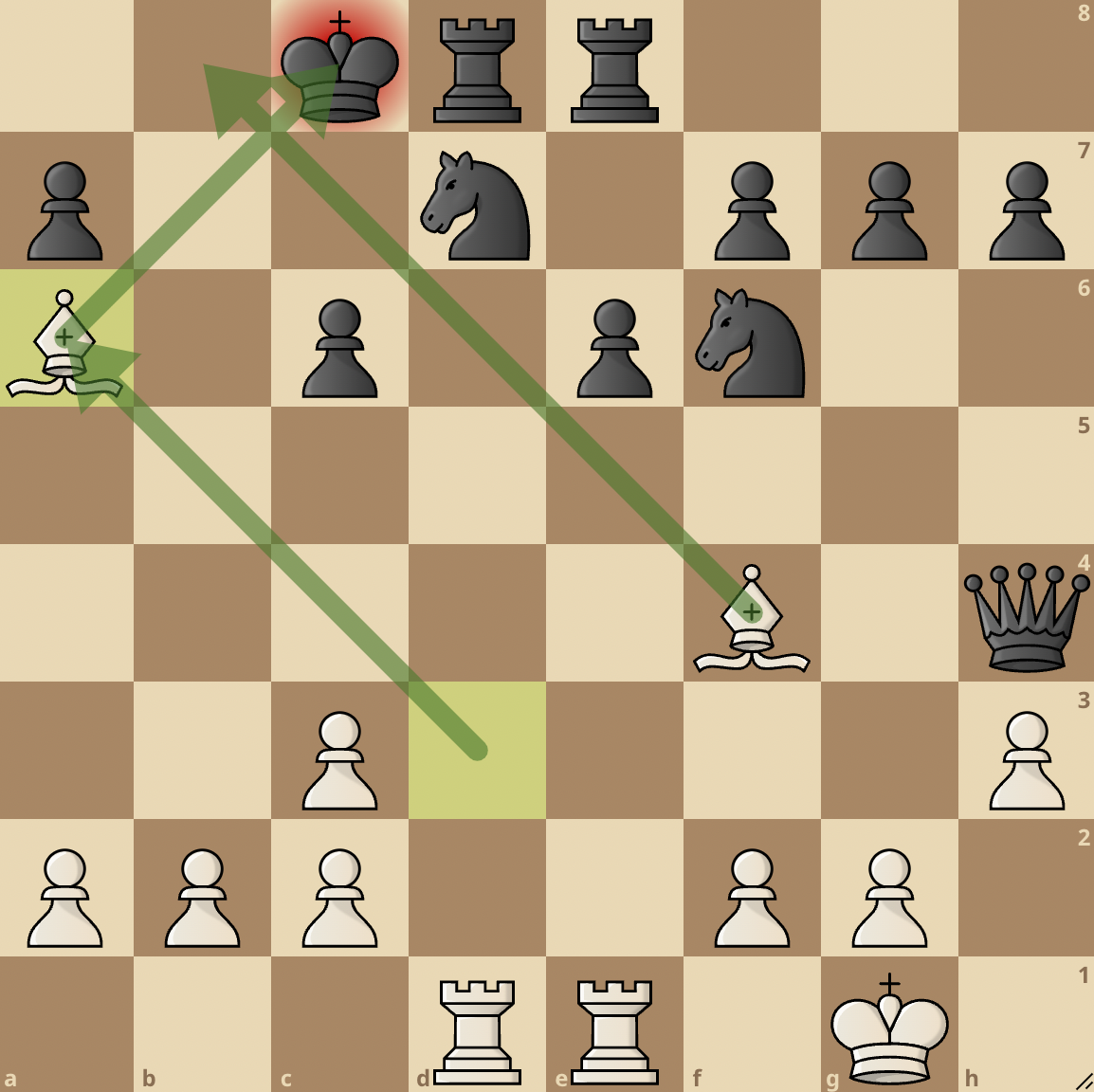
Can you observe how our hypothetical player up there came up with this winning move? He analyzed multiple forcing moves and found the best combination.
Once you get the hang of it, forced moves are actually easy to calculate and detect immediately. You do not have to calculate many variations because you can almost detect your opponent’s reply to every move if it is a forced sequence.
The more forced moves you find, the more you are likely to control the flow of the game and once you are in control, finding the decisive blow won’t be so difficult.
In addition, forced moves also frustrate your opponent, leaving them with no choice but to abandon their plans and attend to the forcing tactic.
It is both an excellent way to play and a cunning tactic that halts your opponent’s plans and forces him to dance to the tune you play.
So how do you train yourself to find forcing moves?
You can start by solving typical checkmate puzzles, either checkmate in 1, 2, or 3 moves, as these will help train your ability to recognize forced moves anywhere.
There are many chess books and software to help with this but for sake of ease, we recommend the book Chess: 5334 Problems, Combinations and Games written by László Polgár (We wrote a detailed review of this book here). You should also try opening an account on Lichess.org (it’s free) where you can solve chess puzzles and train your eyes to easily see forced moves.
Solve Chess Studies
Chess studies, also known as chess compositions, are not positions from actual games. Instead, they are chess puzzles or positions that are created to teach chess players.
These puzzles are often created by a network of players who are referred to as chess composers or problemists.
Chess studies combine positions a person has created based on a theme or motif. These are often studies with the White/Black play feature where you’re expected to figure out the idea and calculate it.
These ideas are sometimes counterintuitive and not apparent to the naked eye, but they increase our creative perspectives.
An example of a chess study is the Endgame study.
An endgame study is a composed position in which the solver aims to find the essentially unique way for one side to win or draw, as stipulated, against any moves the other side plays.
Take a look at this endgame study created by Paul Morphy, an American chess player considered the greatest of his time and first unofficial World Chess Champion. It was published in June 28, 1856.
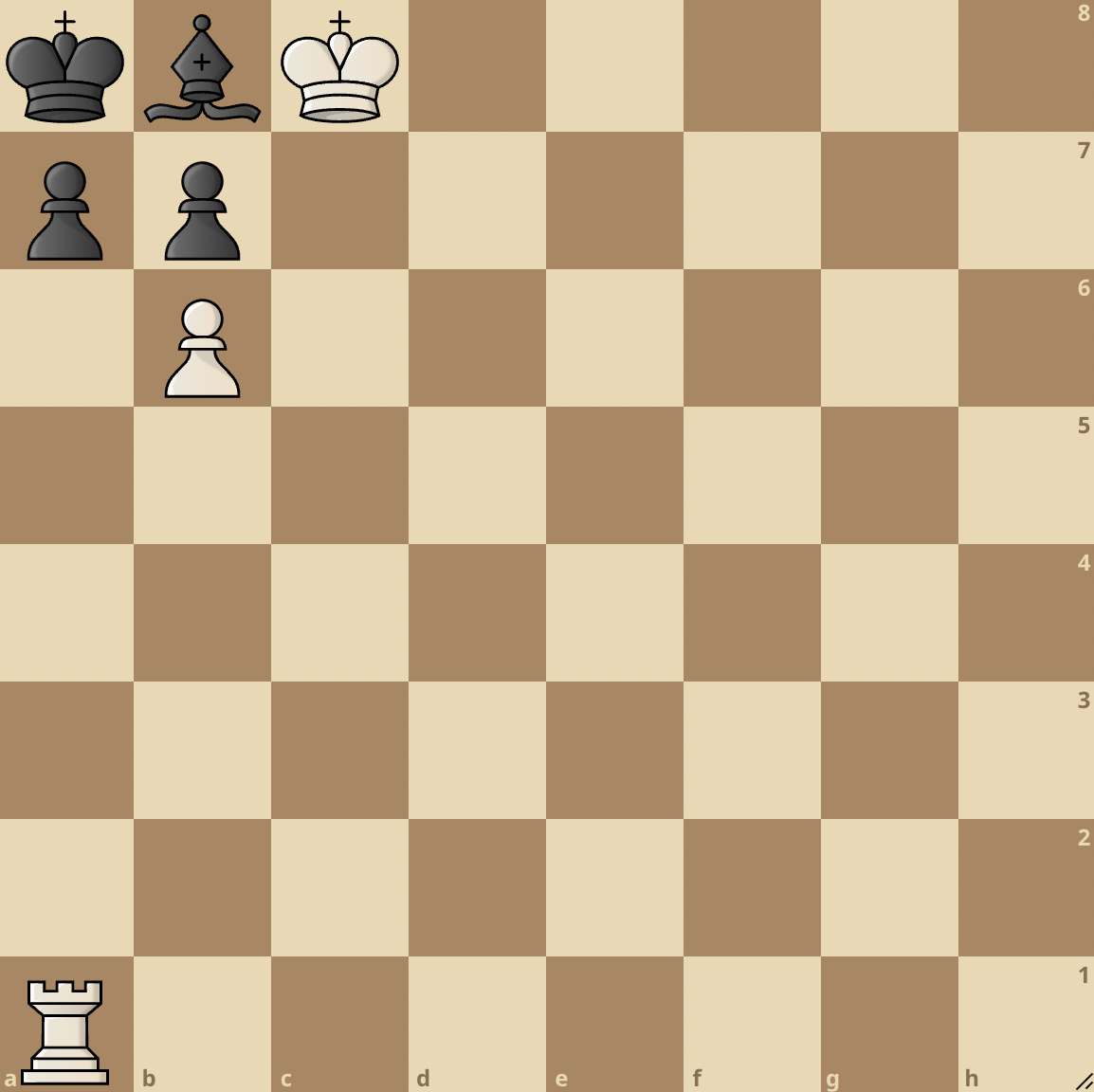
White is winning in this position and can convert it after a few moves but the challenge is rendering a checkmate in two moves.
Can you see it?
White has the unnatural 1. Ra6! forcing Black to capture (another example of forcing moves)
Then White scores the full point with 2. b7#
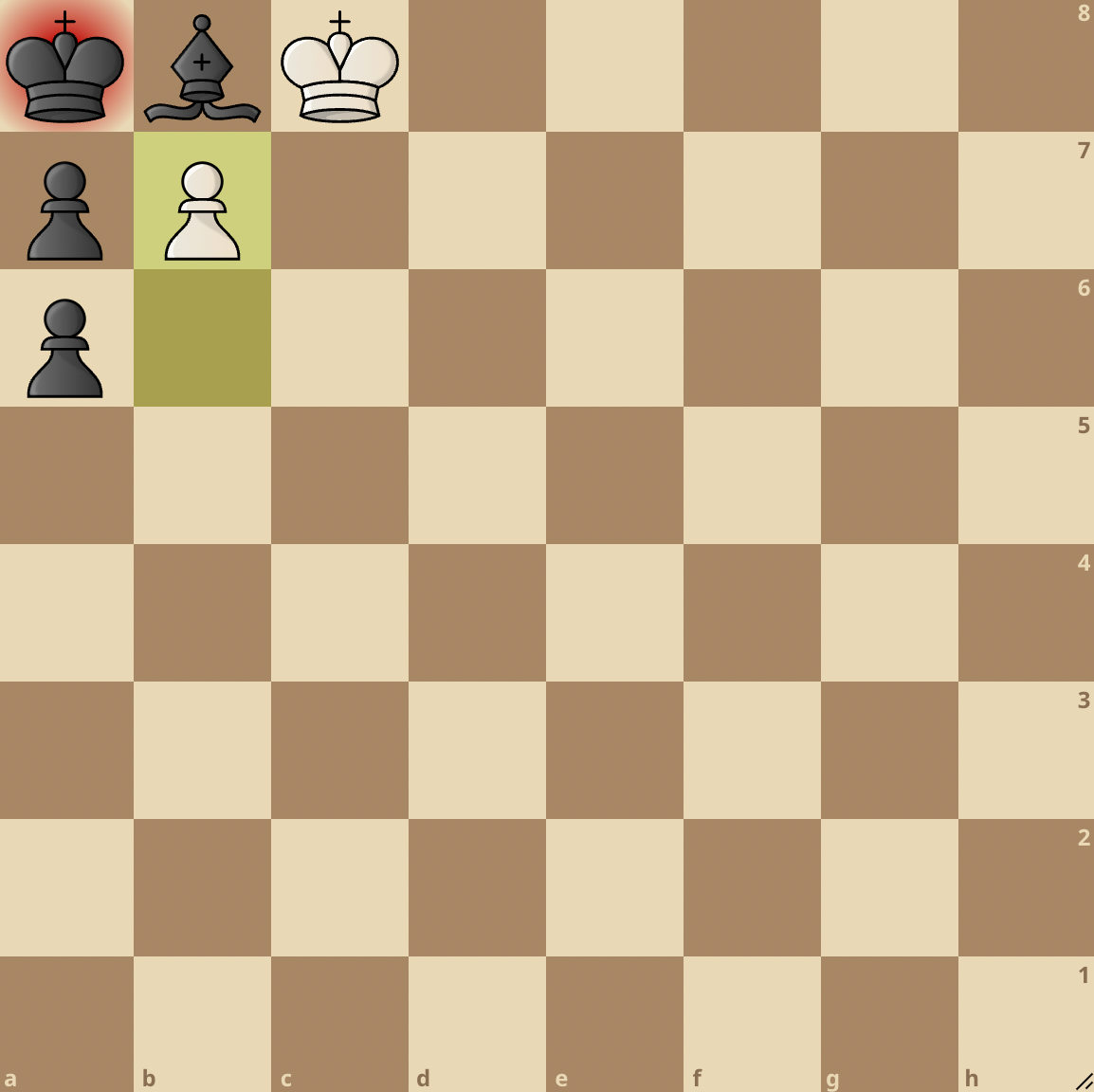
These types of chess studies just shows you how beautiful the game of chess is.
Apart from your calculation skills, chess studies help you to think outside the box and develop your analytical and strategic thinking.
You can find more excellent chess studies on sites like Lichess.org, Arves.org, 365Chess dot com, and Chess dot com.
Solve Puzzles Over-The-Board (OTB)
Solving chess puzzles on the board is a great way to build your calculation skills. As you move the pieces around the board, they register in your subconscious, and a memory pattern begins to form in your brain.
Of course, you can solve these same puzzles on a phone app or PC program, but using a chess board is very important as physical contact is involved, which makes it easier to remember.
To do this well, you’ll need a chess board and a good puzzle book that cuts through puzzles from the opening to the middle game and endgame phases.
Challenge yourself further by using a timer. You could set the clock to 1 min – 15 mins per puzzle, depending on the difficulty level.
Then once you start solving and getting the hang of it, you reduce the timer. So, for example, if you were solving puzzles at a time duration of 5 mins per puzzle, as you go on, you could reduce the time allotted to 3 or 2 minutes.
This helps your brain work faster and simulates the feeling of playing an actual game against an opponent sitting across the board.
Just in case, you’re looking for some very difficult puzzles to solve, we already analyzed the best ones we found in an article. One of the puzzles had a 3900+ rating and another could only be solved in 290 moves!
Below is one of the puzzles:
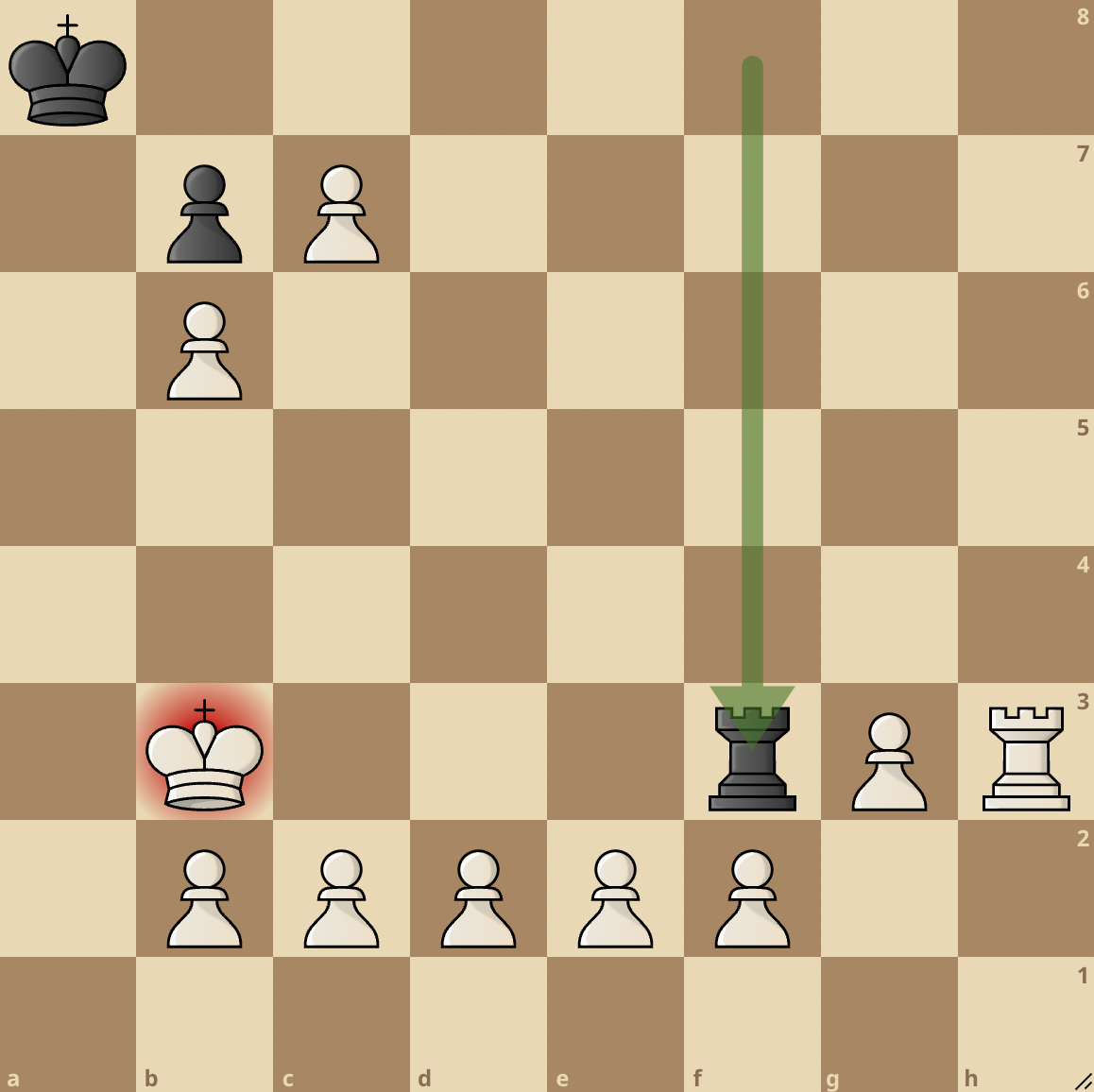
See more (and their solutions) in our Best Chess Puzzles list.
Practice Visualization Techniques
Visualization in chess is the ability to see moves in your mind without them being played physically.
One way to improve visualization is to study a particular position and recreate it mentally. You should repeat this multiple times to get the hang of it.
Grandmasters have the ability to see 5, 10 or even 15 moves ahead in a position. This makes it easier for them to calculate the best moves to be played.
However, this impressive ability is not just natural. With years and years of constant practice, they’ve mastered the art of visualization in chess.
Get a Playing Partner to Work on Your Game
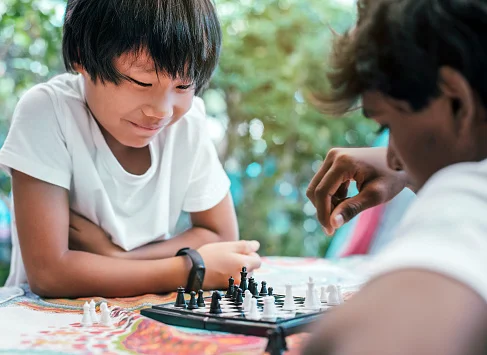
There’s a saying that two heads are better than one. This means that it’s easier for two people to help each other solve a problem than for one person to solve it alone.
This saying applies to chess. In this case, getting another ‘head’ means finding a playing partner.
A playing partner is another chess player who shares the same chess goals you do.
Having a chess partner will go a long way in improving your overall game. A partner will push you to give your best and sometimes offer helpful advice to help your game.
You can also play competitive games with your partner. In this way, you can push and challenge yourselves to improve your calculation skills, making you better chess players.
Play Games with Shorter Time Controls/ Formats
Chess can be played with different time formats, ranging from the longer ones like the classical time controls to faster ones like blitz and bullet.
You can improve your calculation skills by playing 5+0 blitz or 3+0 blitz games. This is because these games put you in a position where you have to think and calculate faster than you would need in longer time formats.
Get Good Chess Books
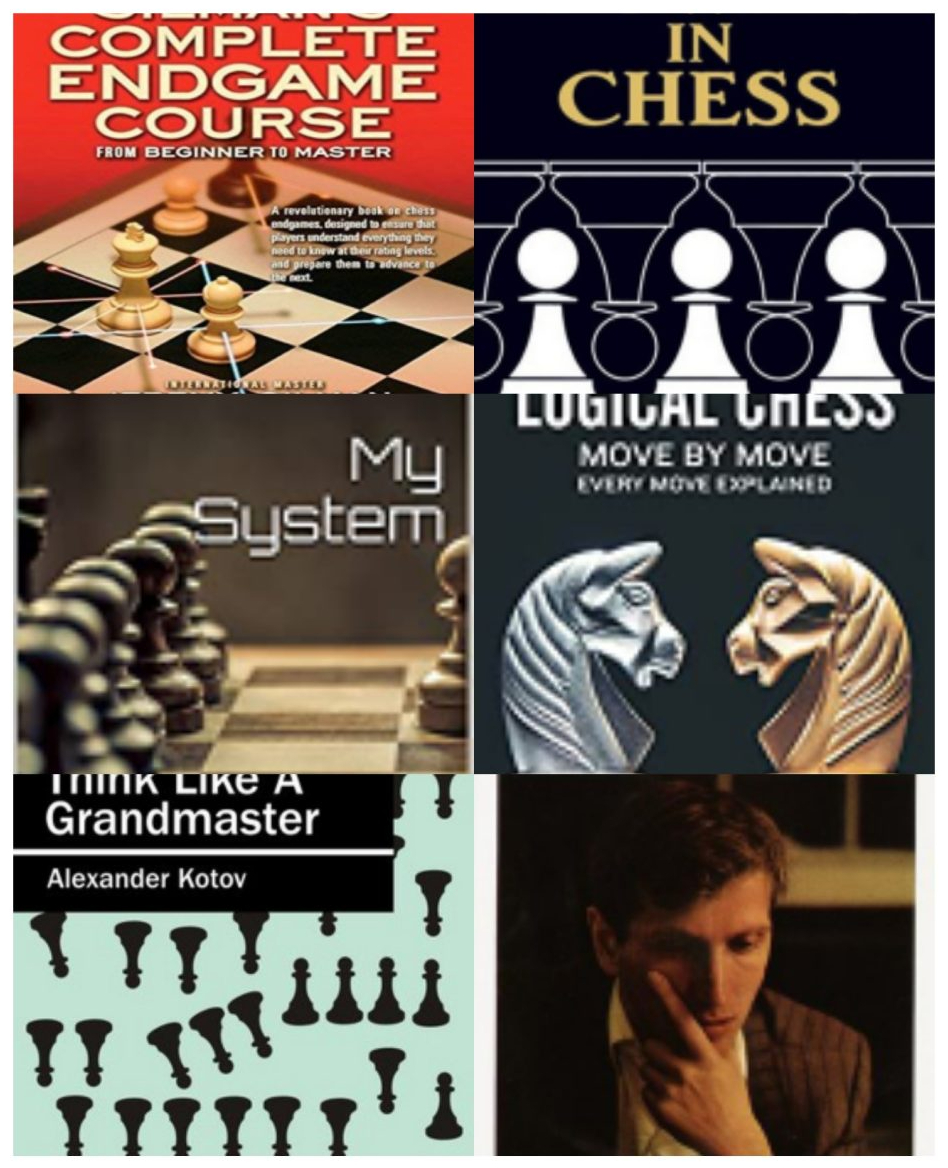
We recommend that you get chess books if you’re intentional about improving your chess calculation.
These books take you on a journey into the mind of the author (usually a grandmaster) where they explain how they calculate and treat various chess positions.
Every grandmaster has studied chess books. You are guaranteed to find a lot of chess books in any grandmaster’s personal library. It’s a needed step that can’t be overlooked.
We wrote a guide recommending various chess books that you should get your hands on. It doesn’t matter whether you’re at beginner, intermediate or advanced levels, there’s something for you.
Read our choice of best chess books of all time.
Play Blindfold Chess
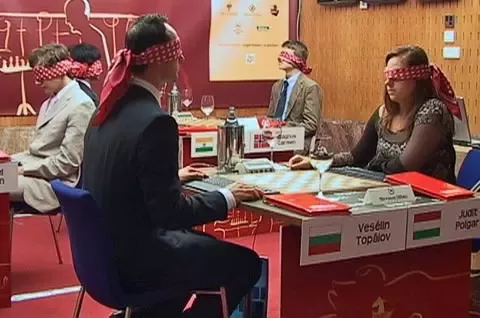
Blindfold chess is a form of chess where the players do not see the positions of the pieces and do not touch them. Instead, they have to maintain a mental recollection of the position at all times.
This is a way way advanced type of chess but it does magic to your calculation skills. It sharpens your memory and strengthens your ability to grasp the intricacies of any chess position.
For example, Magnus Carlsen once played a blindfold exhibition in New York against 3 players, and unsurprisingly won all games.
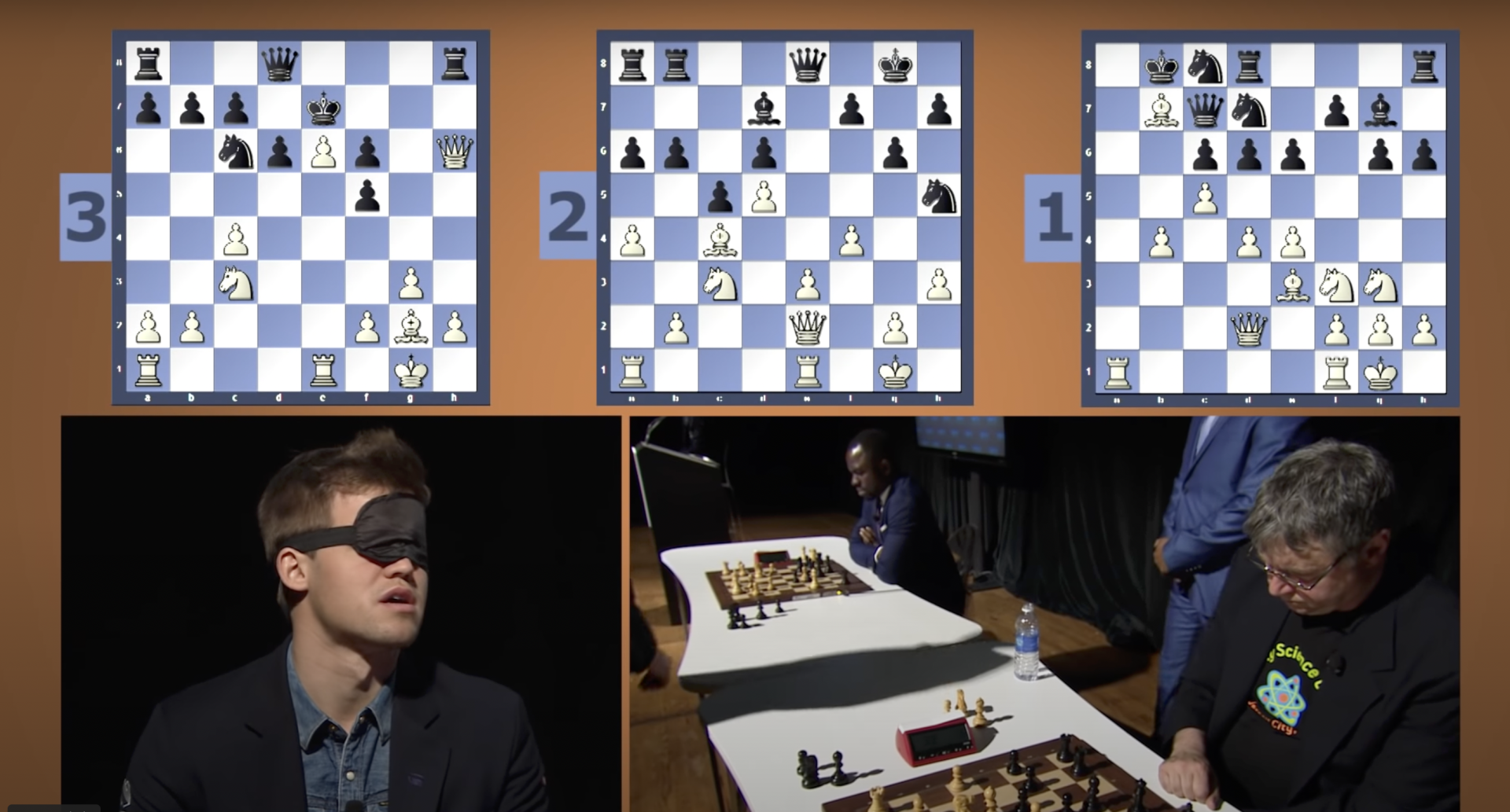
This is because of the extent of his calculation skills which enabled him to visualize more than one chess board in his head and keep track of all the moves being played on the various boards.
You can also practice playing blindfold games on Lichess.
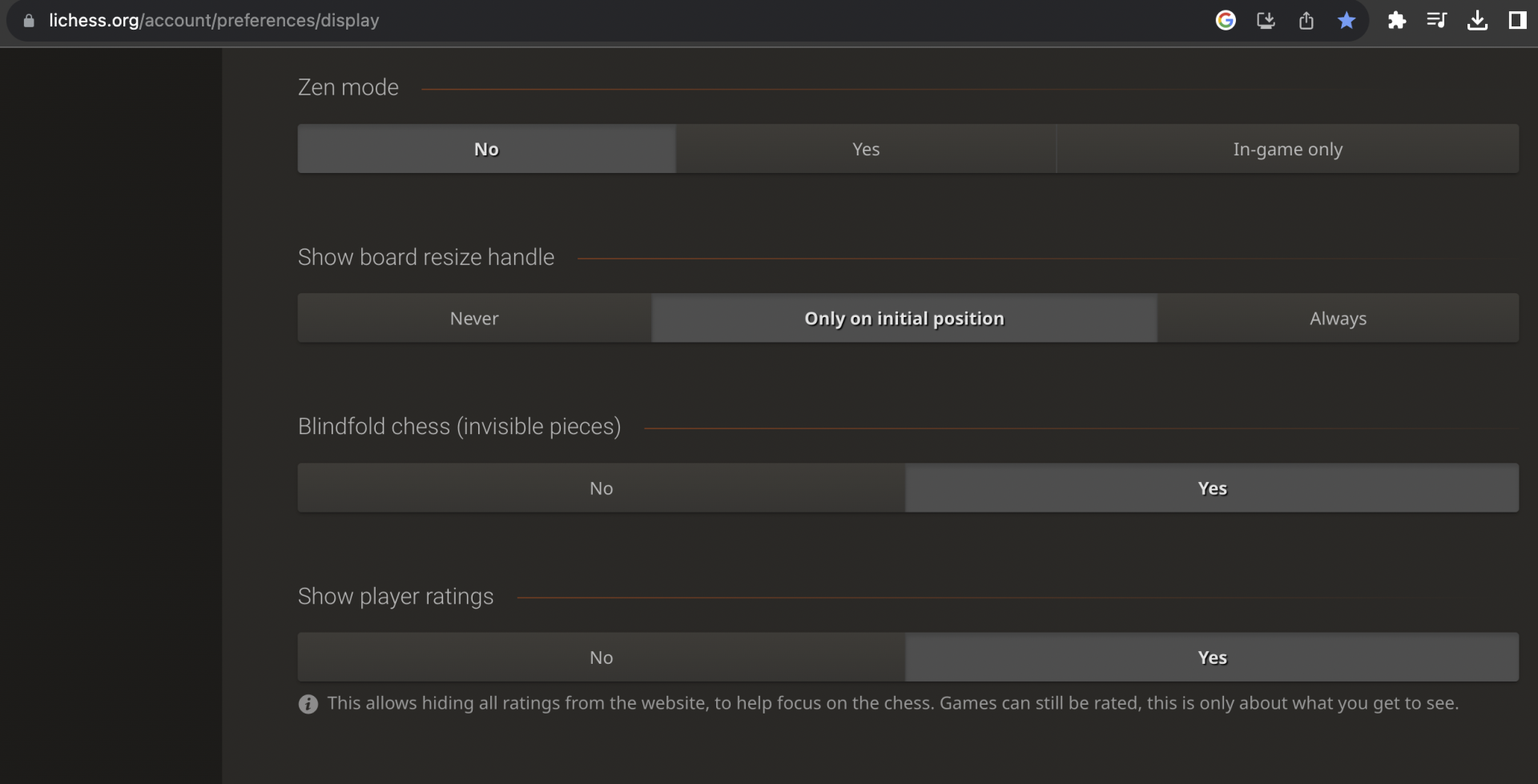
All you need to do is activate the blindfold mode where all your pieces turns invisible and you have to play while keeping a mental picture of your position at all times.
If you have a chess-playing partner, that’s much better. Your partner will help you actively.
Follow Grandmaster Games
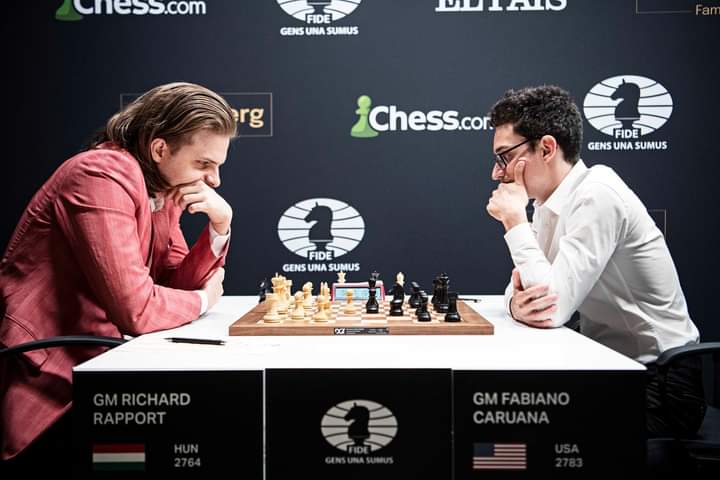
One of the best ways to learn is to take pointers from experts.
The ‘ultimate’ experts in chess are Grandmasters. These are players who are exceptionally strong and tactically sound.
Following grandmaster games is one sure way to improve your calculation skills. By watching their games, you pick up valuable lessons on various aspects of chess.
You can follow grandmaster games online on sites like YouTube. We love channels like Magnus Carlsen and GMHikaru.
That’s it. Let us know if you found this blog post helpful.
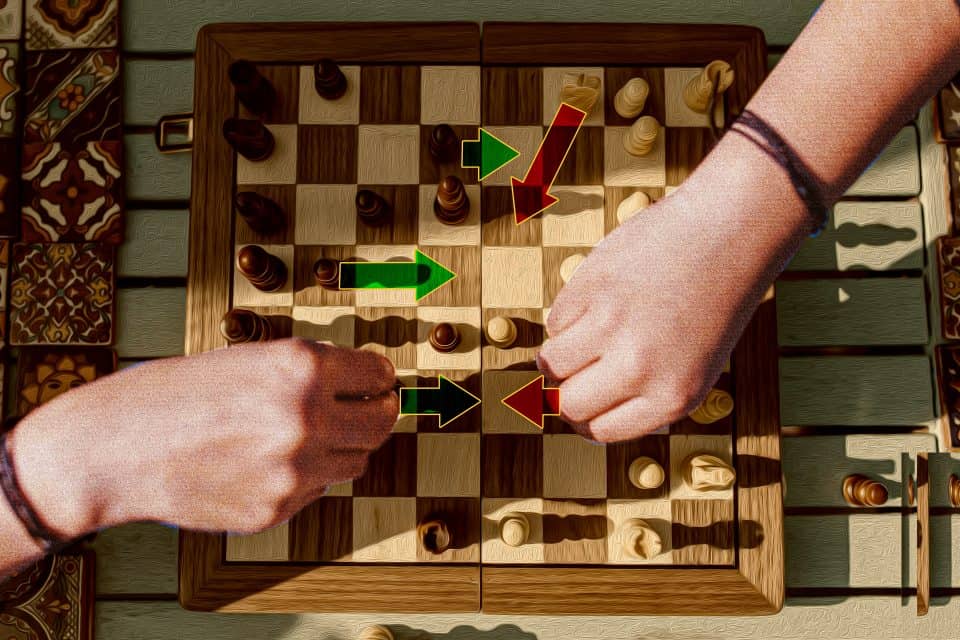


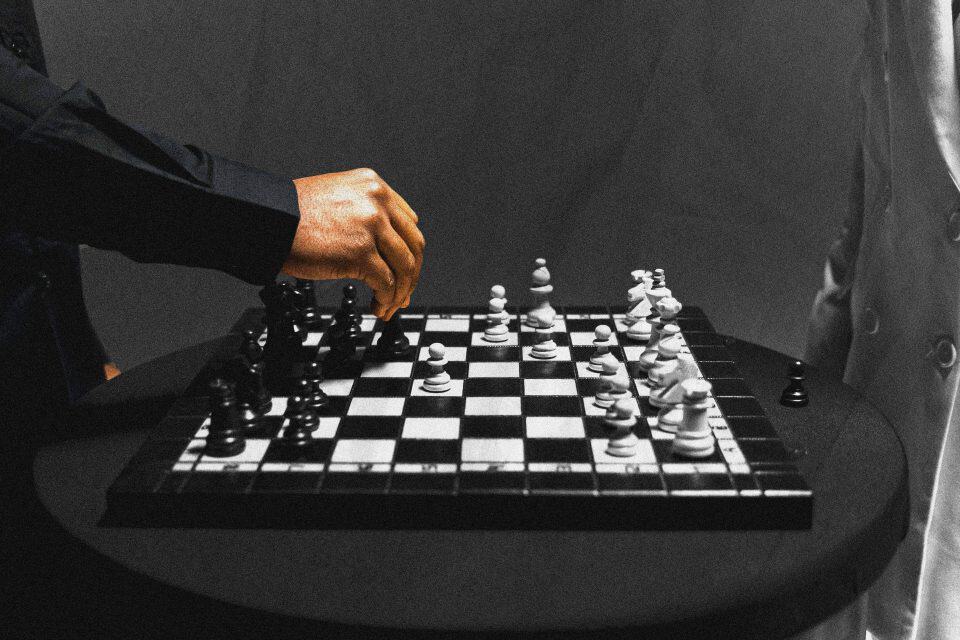
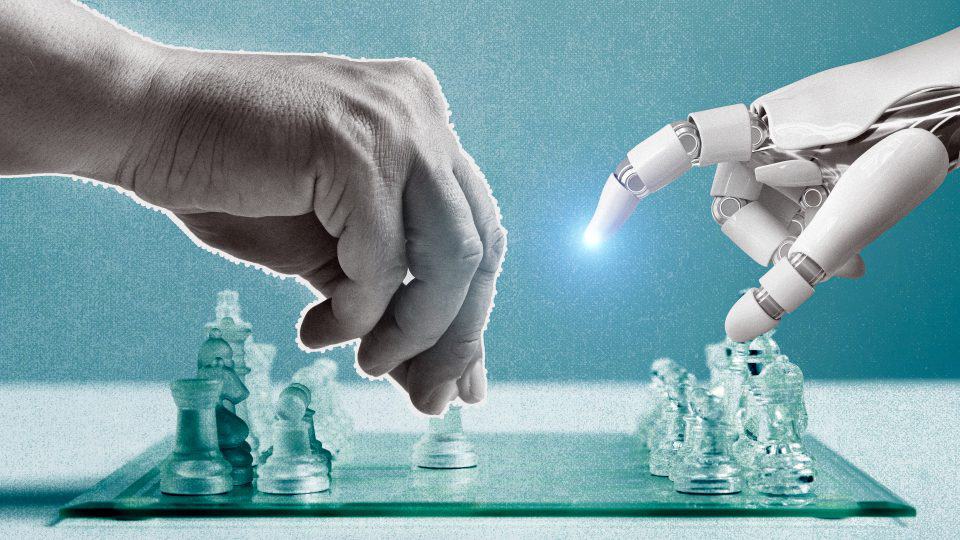
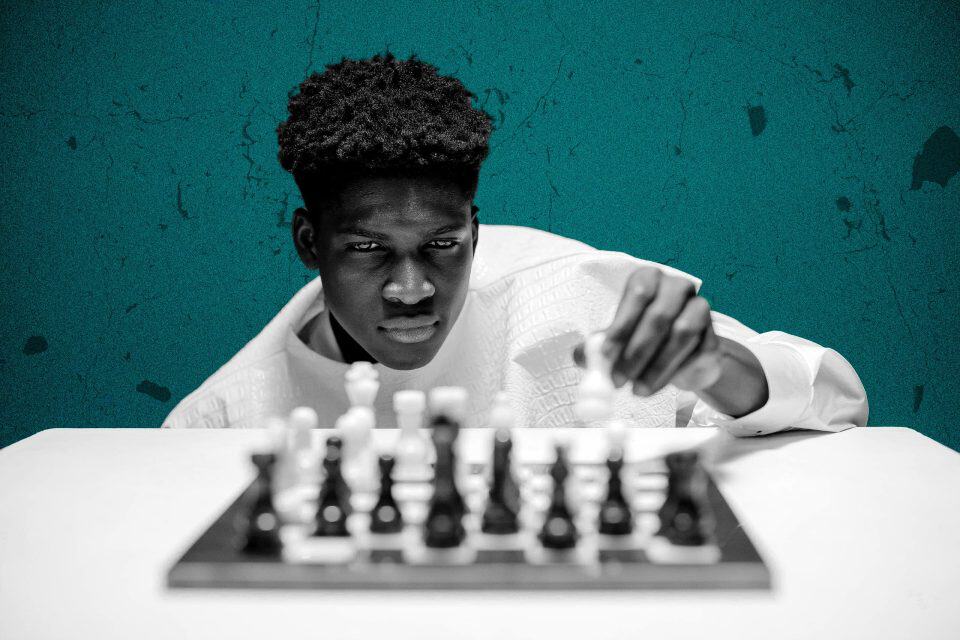
join the conversation